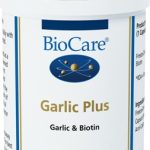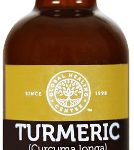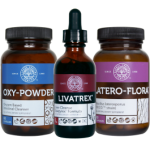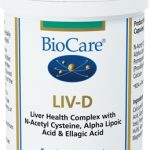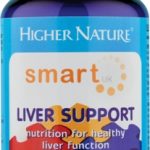There’s no getting away from it; in the West we simply eat too much junk food, fried food, processed food and, well, too much food in general. Our diets, in the main, aren’t as healthy as they could be; they’re not as healthy as they should be. Many of us like to ignore this fact and so just don’t think about it – so long as we’re adding the odd healthy option to our diet here and there and passing waste successfully, what does it matter? Plenty, potentially. One of the problems is that we don’t consider the daily pressure we’re putting on our livers. And, don’t doubt it; this is bad news, as it’s the liver whose primary job it is to detoxify the food we consume.
The reality is that whenever we eat too much of what we shouldn’t, or overeat or are exposed to environmental pollutants or stress, our liver finds itself overworked and overloaded. Now, in everyday life it’s becoming increasingly difficult to cocoon ourselves from both pollutants in the environment around us and pressures and stresses, yet we can surely do something about the healthiness – or lack thereof – of our diets. So, what foods can we opt for to replace all those dubious ones mentioned above? What foods can we make mainstays to promote good, stable liver health and aid cleansing a liver overburdened by built-up toxins?
Liver cleanse foods
The following foods are all recommended for general liver health and to stimulate its natural course of removing toxic waste from the body:
- Apples, apricots, pears quinces, plums and gooseberries – thanks to their high levels of pectin (a carbohydrate-based molecule that supports heavy metal removal and aids toxin release from the digestive tract), these fruits help ease the liver’s work during cleansing1, 2
- Avocados – an important contributor to the body’s production of glutathione; a tripeptide that operates as a highly effective antioxidant, aiding the removal of free radicals and other toxins in the liver3
- Beetroots and carrots – effective for stimulating and supporting liver function4, both of these root vegetables are packed full of beta-carotene and plant-flavonoids
- Broccoli, cabbage and cauliflower – these cruciferous vegetables are great for glucosinolates, natural compounds that promote the creation of liver enzymes, which are critical components in cleansing and which may too lower the risk of developing cancer1; to this end, cabbage-based foods like cabbage soup, coleslaw, kimchi and sauerkraut are also highly recommended
- Buckwheat, millet and quinoa – the grains that people usually consume (wheat and flour, for instance) are full of glutens, which tend only to complicate your liver’s work and its efficacy (research suggests those who are gluten-sensitive tend to experience abnormal liver enzyme test results5); by contrast, the mentioned alternative grains are much easier on the liver
- Citrus fruits – comprising high quantities of both Vitamin C and antioxidants (the latter of which target harmful oxidising agents throughout the body), the likes of grapefruit, lemons, limes and oranges combine to promote natural liver cleansing1
- Garlic – possessing the ability to get your liver’s enzymes working and aid the flushing out of carcinogens and other toxins6, garlic (even in small quantities) is great for liver cleansing; not least as it also contains allicin and selenium, two substances that can be highly contributory here
- Green, leafy vegetables – arugula, bitter gourd, chicory, spinach and dandelion and mustard greens are all fantastic for the liver; why? Because, thanks to containing the antioxidant chlorophyll, they can help target environmental toxins7 and neutralise the hazardous effects of heavy metals and pesticides by contributing greatly to the generation of bile in the liver, which plays a critical role in removing waste throughout the body
- Green Tea – a healthy drink-alternative to add to your diet, green tea’s so good for the liver because it features plant-based antioxidants called catechins8; note: aim for green tea not green tea extract, as the latter may not offer any liver cleansing benefits at all
- Turmeric – a spice that can successfully enhance liver detoxification by aiding enzymes working to flush out consumed toxins6
- Walnuts – known for comprising Omega-3 fatty acids (which act, among other things, as antioxidants), they also contain glutathione9 and arginine (which aids ammonia detoxification)10, all of which ensures they’re great at supporting natural cleansing of the liver11, 12.
Liver cleanse supplements
On their own, adding all the above foods to your diet (or a variety of them) in place of harmful alternatives will do your liver a lot of good, of course; however, there’s no getting away from it – performing a liver cleanse every so often during the year will do it enormous good. However helpful your diet may be, a liver cleanse will ensure that not just the usual toxic waste is removed from this organ, but also the clogging toxins it’s usually unable to extract itself.
To that end, like all the other products to be found in our ‘Liver & Gall Bladder Health’ section, the following supplements are each fantastic for liver cleansing and, of course, fully available through us at The Finchley Clinic:
GHC Liver Health Kit – an all-natural approach to liver (and gallbladder) cleansing, comprising the supplements Livatrex (to kick-start the cleansing process), Oxy-Powder (to aid toxin removal) and Latero-Flora (a truly potent probiotic).
LIV-D – supports healthy liver function thanks to its blend of the natural antioxidants n-acetyl cysteine and alpha lipoic acid, along with pomegranate extract and calcium, whose synergistic effect is highly effective.
Smart UK Liver Support – a powerful blend of amino acids, vitamins and minerals to promote improved liver health, especially for those who have regularly drunk alcohol, smoked or taken recreational drugs.
References:
1. Guan Y.-S. and Qing H. ‘Plants Consumption and Liver Health’. Evidence-based Complementary and Alternative Medicine : eCAM 2015 (2015): 824185.
2. Bobek P. et al. ‘Effect of Dehydrated Apple Products on the Serum and Liver Lipids in Syrian Hamsters’. Die Nahrung., vol. 34, no. 9, Jan 1990, pp. 783–9.
3. Brai B. I. C. et al. ‘Hepatoprotective Properties of Aqueous Leaf Extract of Persea Americana, Mill (Lauraceae) “avocado” Against Ccl4-Induced Damage in Rats’. African Journal of Traditional, Complementary and Alternative Medicines, vol. 11, no. 2, 1 July 2014, p. 237.
4. Vali L et al. ‘Liver-Protecting Effects of Table Beet (beta Vulgaris Var. Rubra) During Ischemia-Reperfusion’. Nutrition, vol. 23, no. 2, Feb 2007, pp. 172–178.
5. Zali M. R. et al. ‘Liver Complications in Celiac Disease’. Hepatitis Monthly 11.5 (2011): 333–341.
6. Braun L. and Cohen M. ‘Herbs and Natural Supplements, Volume 2: An Evidence-Based Guide, Volume 2’. Elsevier Health Sciences, Mar 2015.
7. Dashwood R. ‘Chlorophyll and Chlorophyllin’. Linus Pauling Institute, Oregon State University. Jun 2009.
8. Sakata R., Nakamura T., Torimura T., Ueno T. and Sata M. ‘Green tea with high-density catechins improves liver function and fat infiltration in non-alcoholic fatty liver disease (NAFLD) patients: A double-blind placebo-controlled study’. International Journal of Molecular Medicine 32.5 (2013): 989-994.
9. Taha N. A. ‘Utility and Importance of Walnut, Juglans Regia Linn: A Review’. African Journal of Microbiology Research, vol. 5, no. 32, Dec 2011.
10. Wu G. et al. ‘Arginine Metabolism and Nutrition in Growth, Health and Disease’. Amino acids 37.1 (2009): 153–168.
11. Kaplowitz N. ‘The Importance and Regulation of Hepatic Glutathione’. The Yale Journal of Biology and Medicine 54.6 (1981): 497–502.
12. Scorletti E. and Byrne C. D. ‘Omega-3 Fatty Acids, Hepatic Lipid Metabolism, and Nonalcoholic Fatty Liver Disease’. Annual Review of Nutrition., vol. 33, Jul 2013, pp. 231–48.

